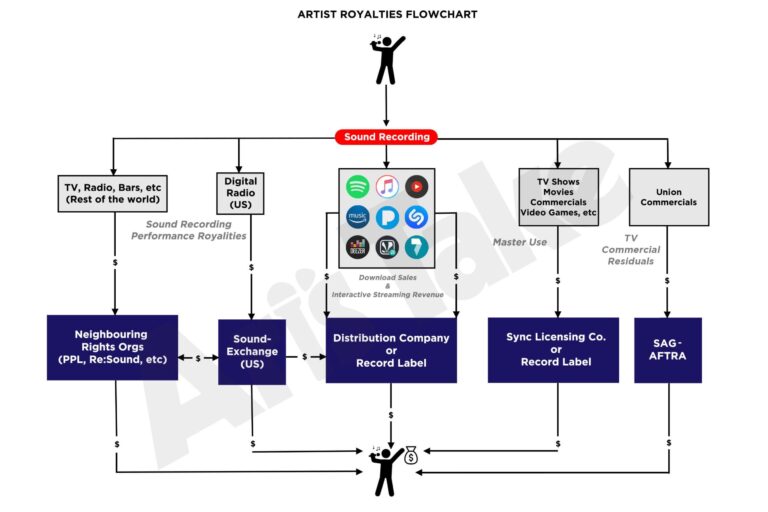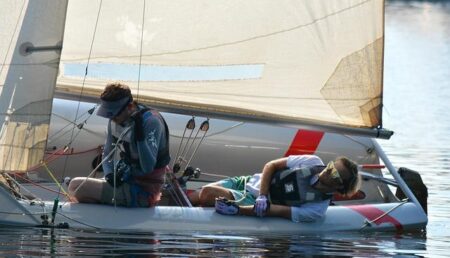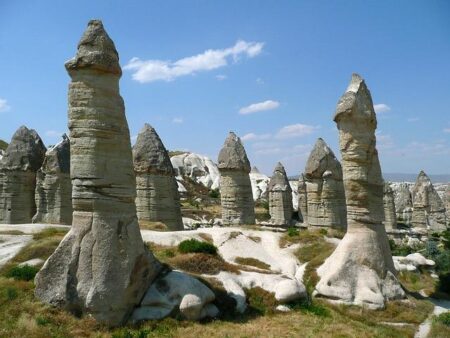How Cabo Verde’s Ocean Shapes Community Life and Sustainable Growth – Insights from the United Nations
Nestled in the vast Atlantic, the volcanic archipelago of Cabo Verde is a vibrant mosaic of culture and community intricately linked to its surrounding marine environment. Home to over 500,000 inhabitants, these islands depend profoundly on the ocean—not only as a source of nourishment but also as a fundamental pillar supporting their economy and cultural identity. From artisanal fishing and eco-tourism to maritime commerce and biodiversity preservation, the ocean remains indispensable for Cabo Verde’s people. As global leaders gather under the United Nations framework to tackle sustainability challenges, Cabo Verde exemplifies how coastal ecosystems can nurture resilient communities. This article delves into the symbiotic relationship between Cabo Verdeans and their marine surroundings while highlighting ongoing efforts to safeguard this fragile balance amid climate change pressures and economic demands.
Marine Resources: The Engine Behind Cabo Verde’s Economy
The rich marine biodiversity enveloping Cabo Verde plays an essential role in sustaining local economies by providing livelihoods for many islanders. Traditional fishing remains at the heart of daily life along coastal villages where families rely on abundant fish stocks for both food security and income generation. These waters yield diverse species that support domestic consumption while also fueling export markets—injecting crucial capital into other sectors such as tourism infrastructure development and trade networks.
Beyond fishing, marine assets underpin thriving tourism ventures that showcase Cabo Verde’s natural allure. Tourists are drawn by activities like scuba diving, dolphin watching, and guided sustainable fishing excursions—each contributing significantly to local employment opportunities across hospitality services, transport, and artisanal crafts industries. Recent data indicates that tourism accounts for approximately 25% of national GDP with marine-based attractions being key drivers.
| Sector | Contribution to Local Economy |
|---|---|
| Fishing Industry | Main livelihood source; supports food security & exports |
| Tourism Sector | Diverse marine experiences attract visitors; generates jobs & revenue |
| Aquaculture Development | Sustainable alternative reducing pressure on wild fisheries; promotes innovation |
Ocean as Cultural Anchor: Traditions Rooted in Maritime Heritage
For generations, Cape Verdeans have forged an intimate bond with their surrounding seas—a connection extending beyond economics into cultural identity itself. The ocean is woven deeply into community life through ancestral fishing customs passed down within families who rise early each day to cast nets amidst shimmering waves—not merely out of necessity but as a ritual reinforcing social cohesion.
Cultural expressions celebrating this maritime heritage abound throughout island festivals where music rhythms mimic ocean tides while dances narrate seafaring tales handed down through time. Events such as “Festival do Mar” transform coastal towns into vibrant arenas showcasing art inspired by sea colors alongside storytelling sessions honoring ancestors’ reliance on aquatic resources.
This enduring relationship fosters pride among locals who view stewardship of their waters not just as environmental responsibility but also preservation of collective memory—bridging past traditions with contemporary aspirations toward sustainable futures.
Embracing Sustainability: Protecting Marine Ecosystems While Fostering Economic Prosperity Â
Cabo Verde stands at a critical juncture balancing economic growth with conservation imperatives amid mounting climate threats affecting ocean health globally—including rising sea temperatures impacting fish migration patterns here too. Recognizing this vulnerability has spurred adoption of innovative practices aimed at safeguarding biodiversity without compromising livelihoods.
Local fishermen increasingly employ selective gear techniques minimizing bycatch , complemented by government-backed programs promoting responsible aquaculture ventures cultivating species like seabass under controlled conditions—thus alleviating pressure on wild populations while diversifying income streams.
Simultaneously, eco-tourism initiatives target environmentally conscious travelers seeking authentic experiences aligned with conservation values—such as guided tours within newly established marine protected areas (MPAs). These zones serve dual purposes: preserving critical habitats including coral reefs vital for fisheries regeneration while offering educational platforms fostering awareness about sustainable resource use among visitors.
Collaborative partnerships involving governmental agencies, NGOs, academia, private sector stakeholders—and most importantly local communities themselves—are driving forward community-led conservation projects ensuring equitable distribution of benefits derived from healthy oceans.
Such integrated approaches position Cabo Verde not only as a regional leader in blue economy development but also align closely with United Nations Sustainable Development Goal 14 (Life Below Water), emphasizing responsible management of oceans worldwide.
Conclusion: The Ocean’s Enduring Role in Shaping Resilience & Prosperity in Cabo Verde Â
In summary, the Atlantic waters encircling Cabo Verde remain indispensable—a lifeline intertwining ecological wealth with socio-economic vitality across its islands’ communities. This exploration reveals how harnessing marine resources responsibly sustains both traditional ways-of-life rooted in cultural heritage alongside modern ambitions toward inclusive growth driven by innovation in fisheries management and eco-tourism development.
The ongoing commitment demonstrated through collaborative stewardship efforts highlights an inspiring model where environmental protection coexists harmoniously with human prosperity—a narrative resonating strongly within global dialogues led by entities like the United Nations focused on safeguarding our planet’s blue frontiers for future generations.
As climate uncertainties loom large worldwide—with oceans facing unprecedented challenges—the story emerging from these islands offers hope grounded firmly beneath waves teeming with life: that resilience built upon respect for nature can chart pathways toward sustainable futures benefiting all.







